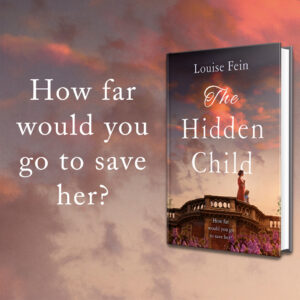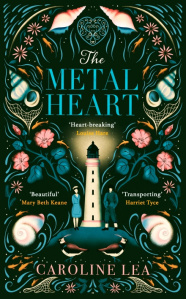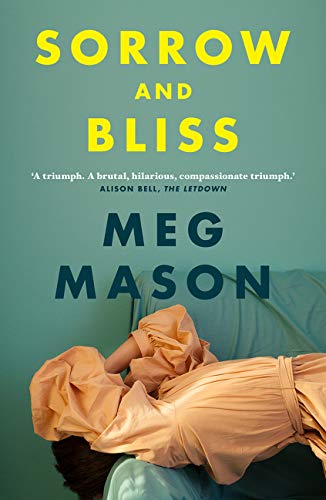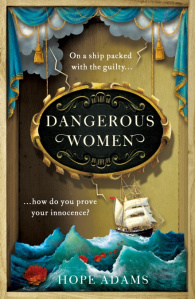The book doesn’t relate this particular event, but we can say that it is the underlying theme behind the story.
About the Book
7. I like to end my Q&As with the same question so here we go. During all the Q&As and interviews you’ve done what question have you not been asked that you wish had been asked – and what’s the answer?
4. Is there anything about the process of publishing a book that still surprises you?
It can be a challenge to find the right voice for the characters and the right tone for the narrative, although that’s generally not a problem if it’s a book that somehow clicks. Let’s be blunt about this… A good book is a lot easier to translate than a bad one, even if it’s more difficult. If that makes sense.
Quentin: I have no idea… There are a good few questions that have made me wince, or which I have done my best to dodge – although none in this Q&A. So there are questions I wish I hadn‘t been asked, but I can‘t think of any questions I would have wanted. Sometimes I have wished an interviewer could have been more direct, or (on a few occasions) better prepared, by having actually read the book. It‘s more the bad, or completely nuts, questions that stick in my mind, rather than the ones that weren‘t asked.
5. What do you do when you aren’t writing and translating? What do you do to relax and get away from it all? (Both)
As the killer prepares to strike again, Salka and her team search for the band of old friends who could be either killers or victims – or both.
6. If you could only read one book for the rest of your life which book would it be?
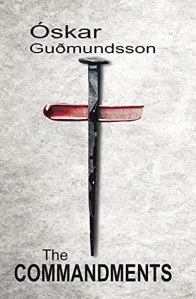
The hardest things to translate (I find) are jokes, especially puns, and these are inevitably untranslatable. So you’re left with the choice of translating faithfully and producing something that isn’t funny, which isn’t what the author wanted – or deviating from it and inserting something that is funny, but isn’t exactly what the author wrote. Fortunately there aren’t all that many jokes in crime fiction, although maybe there should be a few more.
The victim is someone she had pursued earlier in her career – and had never been able to pin down. Now a killer has taken the law into their own hands and meted out brutal retribution for ancient crimes.
Former detective Salka Steinsdóttir finds herself unwillingly pitched into the toughest investigation of her life, just as she returns to the tranquil north of Iceland to recover from a personal trauma.
1. Tell us a little about The Commandments.
5. What makes a great translation?
Secondly, the story is about how the people we trusted as children can fail us.
Quentin: There hasn‘t been much of this for the last few years. Normally I would spend some time in Iceland, as two of my children and my grandchildren live there, but Covid has put a stop to that for a while. In fact, due to Covid, I have hardly moved from the kitchen table for almost two years. A few years ago I gave up training in martial arts, because I‘m getting old and had picked up a few too many injuries. So I started learning Russian to fill the gap and exercise the grey cells instead of the muscles. I‘m still not sure if that was a good idea.
4. What challenges are there to translating a novel?
Salka is faced with tracking down the murderer of a stalwart of the church and the community, a man whose reputation stretches deep into the past, and even into the police team tasked with solving the case.
2. What inspired the book?
Óskar: The Commandments focuses on detective Salka Steinsdóttir, who has been living with her family in Britain and working there with the police. She returns to her roots in Akureyri, in the north of Iceland, due to family difficulties. A former colleague in the Akureyri police gets in touch with Salka, asking her to take part in investigating death of a priest who has been found murdered in the church of a country church not far from Akureyri. The case gathers momentum, not only leading Salka to investigate events that took place nineteen years before, but she also realises that other figures within the church are in danger.
The practical challenges are things like getting names of products, police ranks and places right, but normally that’s a case of looking things up and doing some cross-checking. Anything to do with finance or banks is always a headache.
Óskar and Quentin kindly answered a few of my questions.
Óskar: I have to say Don Quixote by Miguel de Cervantes, a fabulously entertaining story.
Quentin: It still never fails to surprise me how long the process can be. Not much in publishing happens fast, although I’m coming to appreciate that there are generally good reasons for this. The translation is just one link in the chain, and there are rounds of editing, copy-edits, proof-reading, etc, before the work is finished. And there’s inevitably a typo or two that slips through the net.
Óskar: I paint to relax and have done this since childhood. I‘ve held a couple of exhibitions and am working on a series right now that should be exhibited next year. The best place to relax is with my family. I‘ve also been fly-fishing for a few years and love to be on the river bank. Quite a few ideas that have made it into books have germinated there.
Óskar: To start with I plan the story in detail. I begin with a framework fro beginning to end, although the ending as often as not turns out to be something other than what I had planned. I allow myself plenty of tie for research. I feel it’s important to understand the background of the subjects I’m writing about, as well as the locations. I visited all of the locations that appear in The Commandments, and spent time in the north of Iceland, in Akureyri and Grenivík.
Quentin: It depends very much on the novel. Some can be relatively straightforward and others can be challenging. The challenging ones tend to be more fun.
3. Are you a plan, plan, plan writer or do you sit down and see where the words take you?
The Commandments by Óskar Guðmundsson, translated by Quentin Bates, was published by Corylus Books on 29 October 2021.
Quentin: If you can read the story and not notice that it’s a translation, then the translator has done a decent job.
But I also think it’s very important during the process for the words to take me on a mystery tour, to let the writing flow without thinking to much about planning, because normally it can be exciting to see where the words lead.
Quentin: I have no idea, and apart from not being able to read at all I can‘t imagine much worse that having to read only one book for ever more. Today I‘d probably choose the Hitch-Hiker‘s Guide to the Galaxy (a collected edition of all five volumes), but if you were to ask me again tomorrow, I‘d probably choose something different.
Óskar: Initially, it was a terrible event that befell a childhood friend of mine, which was linked to people within the church. This event affected me deeply, and long before I became a writer I had already promised myself that I would tell this story in one way or another.


